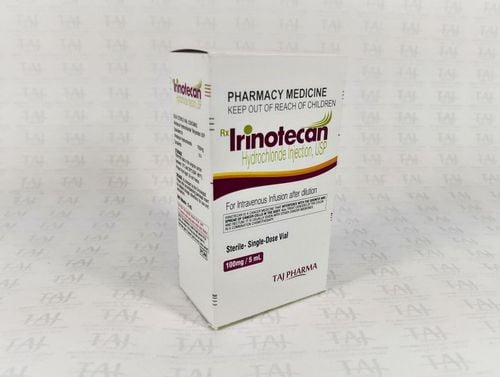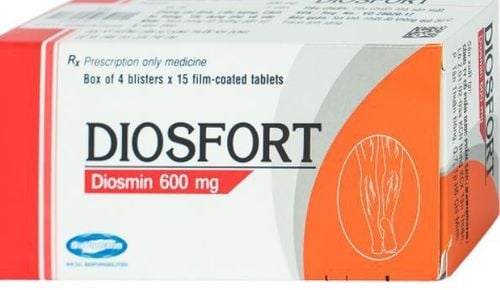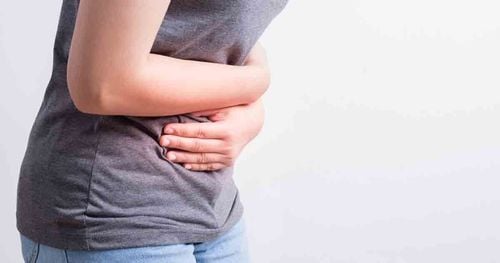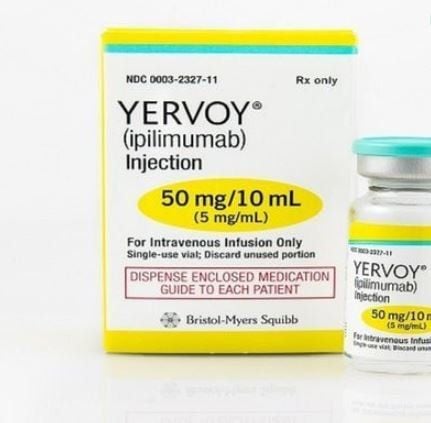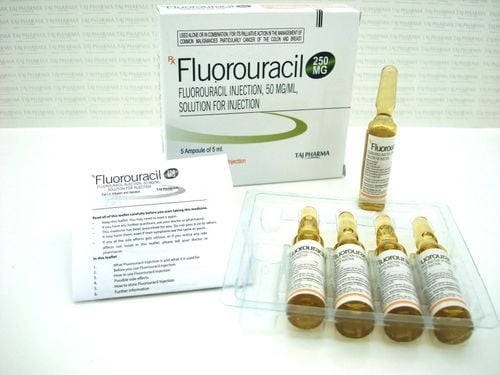This is an automatically translated article.
Posted by Master, Doctor Mai Vien Phuong - Department of Examination & Internal Medicine - Vinmec Central Park International General Hospital
Symptoms of blood in the stool are very alarming. At the same time, this is also a symptom that appears in both people with colorectal cancer and hemorrhoids. So what are the signs and symptoms of these two diseases and when to see a doctor.
1. Similar symptoms of hemorrhoids and colorectal cancer
Hemorrhoids and cancer are completely different conditions, but cause some of the same symptoms.
1.1. Rectal bleeding
Rectal bleeding can manifest in a number of different ways. You may notice blood on the toilet paper, in the toilet bowl, or in the stool after a bowel movement.
Hemorrhoids are the most common cause of rectal bleeding. However, cancers, including colorectal cancer and anal cancer, can also cause rectal bleeding.
The color of the blood can tell where the blood comes from. Bright red blood is more likely to come from the lower digestive tract, such as the rectum or colon.
Dark red blood can be a sign of bleeding in the small intestine. Black, tarry stools are usually caused by bleeding in the stomach or upper part of the small intestine.
SEE ALSO: Distinguishing signs of colon cancer, anal cancer and hemorrhoids
1.2. Rectal and anal itching
Both of these conditions can cause rectal or anal itching. Mucus and stool from inside the rectum can irritate the sensitive skin inside and around the anus, causing itching. Itching often increases after a bowel movement and can be worse at night.

1.3. A tumor in the anal opening
A lump in your anal opening could be from hemorrhoids or from cancer of the rectum and anus.
Hemorrhoids are a more likely cause of anal tumours. External and prolapsed hemorrhoids can cause a lump under the skin just outside the anus.
If blood collects in the external hemorrhoid, it causes a condition known as thrombosed hemorrhoids. This can cause a hard and painful lump.
2. Different symptoms of hemorrhoids and colorectal cancer
Despite similarities in symptoms, hemorrhoids and colorectal cancer also cause some very different symptoms.
2.1. Change bowel habits
Change in bowel habits is a common warning sign of colorectal cancer. The bowel habits are different from person to person. A change in bowel habits is a change that is different from your normal frequency or intensity of bowel movements. This may include:
Diarrhea Constipation, including dry or hard stools Narrow, flat stools Blood or mucus in the stools
2.2. Persistent discomfort in the abdomen
Colorectal cancer can cause persistent abdominal pain or discomfort, including bloating, gas, and cramping. Hemorrhoids do not cause abdominal symptoms.
2.3. Unexplained weight loss
Unexplained weight loss is a common symptom of colorectal cancer that is not caused by hemorrhoids. About 38 to 51 percent of people with colorectal cancer experience unexplained weight loss, depending on the location and stage of the cancer.
2.4. Feeling that your bowels are not empty
The feeling of wanting to have a bowel movement even when your bowels are empty is known as regurgitation. You may feel tense or have pain or cramps. This is a symptom of colorectal cancer, although inflammatory bowel disease (IBD) is a more common cause.
2.5. Weakness or fatigue
Fatigue is a common symptom of different types of cancer. Bleeding in the intestinal tract can cause anemia, which can also make the person tired and weak.

2.6. Rectal pain
Colorectal cancer usually does not cause rectal pain and is usually painless. Rectal pain is more likely to be caused by internal hemorrhoids.
3. Treatment of hemorrhoids
If you are diagnosed with hemorrhoids, home remedies are often all that is needed to relieve symptoms. You can treat hemorrhoids with a combination of home remedies and over-the-counter (OTC) products. Thrombotic hemorrhoids may require medical treatment.
3.1. Treatment at home
Here are things you can do at home to relieve pain, swelling, and itching:
Use over-the-counter hemorrhoid treatments, such as creams, ointments, suppositories, and pads a bath for 10 to 15 minutes, two or three times a day Take an over-the-counter pain reliever, such as ibuprofen or acetaminophen Keep your body clean Eat foods high in fiber to make bowel movements easier. Apply cold to the anus to reduce swelling
3.2. Medical treatment
Hemorrhoidectomy may be recommended depending on the type of hemorrhoid and your symptoms. Surgical procedures for hemorrhoids are minimally invasive and most are performed in a doctor's office without anesthesia.
Surgery may be used to drain a blocked hemorrhoid, remove a hemorrhoid that causes persistent bleeding and pain, or cut off circulation to the hemorrhoid so that it falls off on its own.
3.3. When to see a doctor?
If you have rectal bleeding, seek medical attention immediately. Although hemorrhoids are the most common cause of rectal bleeding, they can also be a sign of cancer.
The doctor may conduct a physical exam, which may include a digital rectal exam, to identify hemorrhoids and rule out more serious conditions.
Make an appointment with your doctor if you have bleeding during bowel movements or pain or itching that lasts more than a few days and is not relieved by home remedies.
See your doctor right away if you have rectal bleeding for the first time, especially if you are over 40 years old or the bleeding is accompanied by a change in bowel habits.
Conclusion
You will feel worried about cancer if you notice blood in your stool or feel a lump. However, keep in mind that hemorrhoids are much more common than colorectal cancer and are most likely the cause of blood in your stools.
A doctor can usually diagnose hemorrhoids with a quick physical exam and other tests, if needed, to rule out colorectal cancer and other types of cancer. See your doctor if you notice blood in your stool or if you have hemorrhoids and have new or worsening symptoms.
Currently, Vinmec International General Hospital has successfully applied hemorrhoid treatment methods for different types of hemorrhoids with different grades, especially longo surgery to treat hemorrhoids. difficult ring to handle. Treatment of hemorrhoids with the Longo method is indicated in the case of grade 2-3 hemorrhoids, suitable for people with ring hemorrhoids with outstanding advantages:
Much less painful than the classic hemorrhoidectomy due to the surgical area The surgery is located on the dentate line of the anal canal, where there are few sensory nerves No open wounds in the anus, easy post-operative care Shortened hospital stay (average 1-2 days) and guaranteed aesthetics, no complications of anal stenosis due to scarring, fibrosis. At Vinmec, the new generation EEA machine of Medronic - Covidien (USA) with DST technology is used to help stop bleeding, ensure a firm cut suture with a large capacity compartment allowing thorough cutting of the mucosa with Internal hemorrhoids .
For examination and treatment with experienced doctors at Vinmec, customers please book an appointment directly at the website for service.
Please dial HOTLINE for more information or register for an appointment HERE. Download MyVinmec app to make appointments faster and to manage your bookings easily.
Reference article source: Anal itching. (n.d.).The American Cancer Society medical and editorial content team. (2018). Colorectal cancer signs and symptoms. Mayo Clinic Staff. (2018). Hemorrhoids.






